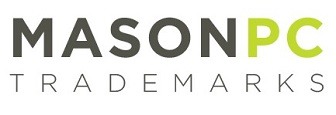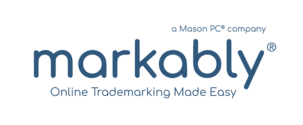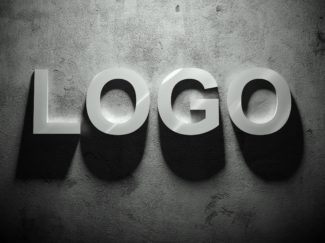Everyone has something special about them. That one thing that people notice the minute they meet you.
For me, its my wild curly hair. Love it or hate it, it’s easy to pick my head out of a crowd!
Every business has something special about them too. That one thing that consumers notice and, hopefully, remember.
That’s your trademark.
I could go on for pages and pages about how to create a memorable trademark. But that’s not the point of this post. We’ve written about that previously, and you can read all about it here.
Today, in honour of the fresh new year, I’m going back to the basics of what is a trademark. Hopefully, this will help you identify the trademarks your business uses, so that you can take the necessary steps to protect them for your exclusive use well into the future.
If you’d like to skip reading this post, book a free consult with our trademark lawyer and send us your website URL and any other marketing materials or plans, and we’ll tell you what trademarks you’re using.
What is a Trademark?
The trademark definition is “a sign or combination of signs that is used or proposed to be used by a person for the purpose of distinguishing or so as to distinguish their goods or services from those of others”.
Lawyers are fun, aren’t they?
In plain-speak, this basically means that your trademark can be anything that you use to set your products or services apart from everyone else’s.
To be capable of differentiating the trademark must be unique. It can’t be similar to someone else’s (do a trademark search to confirm), and it can’t be descriptive or generic.
Within these boundaries, there are three main types of trademarks that most businesses, big or small, consistently use. They are names, logos and taglines, and we’ve discussed each type below so that you can identify which apply to your business. If you’re in the pre-launch stage of your business, you can create a brand structure around what’s common and easiest to protect.
Name Trademarks
You have a name. Your business has a name. Sometimes, your products and services have special names. These names most likely consist of a word or combination of words.
A business name is the name under which a business is operated. If your business is incorporated, the name will have a corporate identifier such as Limited (Ltd.), Incorporated (Inc.), Company or Corporation (Corp.), and it will be on a federal or provincial registry of business names.
Business names aren’t always trademarks, but they can be if they are also used to differentiate products or services. This tends to be more common in service-based businesses, but many product sellers follow this strategy too.
When a business name is also a trademark, it is used to identify the source of products or services. This typically means that the name is on product packaging, signage and advertising. The trademark version of a business name tends to drop the corporate identifier, because it’s easier for consumers to say and to remember. Consider the following examples:
| Business Name | Trademark |
| Home Depot International Inc. | Home Depot |
| Lululemon Athletica Inc. | Lululemon Athletica |
| Kashi Company | Kashi |
Unique and non-descriptive product and service names are also trademarks because they differentiate those products and services from competitors. Adopting a unique product or service name that is different from the source’s business name is not that common for businesses just starting out. Startups tend to use their business name, or a close variation of it, as a trademark for products and services because its easier and less expensive for marketing. But as the business grows and product or service offerings start to multiply, a common strategy is to develop new and unique names for those products and services. Consider the following examples of product or service names that are different from the business name of the source:
| Business Name | Product Trademark |
| Kellogg Company | Special K |
| Apple Inc. | iPhone |
| Insurgent Brands, LLC | RXBAR |
Other types of names that are also trademarks include podcast names, event and show names, and course or program names. Irrespective of what the name is attached to so long as it is used to differentiate the source of the product or service from competitors, it is a trademark and should be protected for your exclusive use.
Logo Trademarks
Your logo is a trademark. In fact, logos are what most people associate with the term “trademark”, because its what you normally see on packaging and advertising. Let’s face it, marketing would be boring and unremarkable if trademarks were only ever depicted as words in standard case lettering with no distinct style.
There are different types of logos that function as trademarks. One is the stylized illustration of a name, and the other is a design or illustration without any words. There can also be combinations of these two types. Consider the following examples:
The distinction between these types of logos is important when devising a trademark registration strategy. A business’ first priority for registration should always be their name trademarks, and these are typically registered in standard uppercase lettering (as a “word mark” in lawyer-speak). A word mark registration will protect a name in any stylized format. So, if your logo consists of just fancy lettering, like the first Instagram logo above, a word mark registration would be enough to protect it
However, a word mark registration would not protect separate design elements, such as the smile design in the first Amazon logo above. In that case, a word mark registration would protect the word Amazon, and we would recommend a second registration to protect the smile design. While you could certainly just register the composite logo that consists of the stylized word plus the design, there are limitations to this approach. First, such a registration wouldn’t protect your use of the components separately
More importantly, separate registrations for words and designs will each provide a broader scope of registered protection for the brand. A trademark registration grants the owner the right to the exclusive use of the mark that is registered. This right is extended to enable the owner of a registered trademark to stop the use of marks that are also confusingly similar. These are marks that are not necessarily identical to the registered trademark, but that are similar in appearance, sounds or suggested ideas and are used in association with related goods or services. The fewer components you have in your trademark registration, the fewer points of distinction an infringer can argue differentiates its mark from your registered trademark.
The best trademark registration strategy for a new business is to register its name as a word mark and register its logo as a second trademark.
Tagline Trademarks
A tagline is a catchy (read: memorable!) phrase or slogan that is typically used in advertising to explain what your company does or the benefit that its products or services provide. There are many great tagline examples, such as “Just do It”, “You’re Richer than you Think”, “The Quicker Picker Upper” and “Betcha Can’t Eat Just One.”
A tagline can become a really well-known identifier for a company and its products and services, but they can have some challenges in terms of trademark protection. The most common challenge is descriptiveness. Trademarks that are obviously descriptive of a feature, trait or characteristic, or intended result from using a product or service are generally not registrable as trademarks, which means they’re not meant for exclusive use. So keep this in mind as you contemplate creating a tagline for your business. You won’t be able to stop others from using your tagline if it is clearly descriptive of what you sell.
Another common challenge with respect to protecting a tagline as a trademark is caused by how it tends to be used. Under the Canada Trade marks Act, a trademark must be used within certain parameters to qualify for protection. For products, a trademark must be on the product, its packaging, or closely associated with the product at the time the purchaser takes possession of it. Displaying a tagline on an ecommerce website would, therefore, not qualify as “use” of a trademark in association with the products being sold. The tagline must also appear on packaging or prominently displayed in a location that would be noticed by purchasers when they receive their purchased product.
The parameters for trademark “use” in relation to services is broader than it is for products, and this makes it easier to satisfy the use requirement in relation to tagline trademarks. Under Canadian law, a trademark only needs to be used or displayed in the performance or advertising of services for there to be protectable trademark use. Having a tagline appear on the website for your service-based business would qualify a trademark use, thus enabling you to protect it for your exclusive use.
These are the most common types of trademarks that businesses use to distinguish their products and services from their competitors, and each of these types of trademarks should be protected by a trademark registration. I could write pages more about why its better to register a trademark in Canada instead of using an unregistered trademark (and our next post will be dedicated to that very subject). But for now, I just want you to think about the trademarks your business uses. We can then look at how to best protect them.
If you’d like some help identifying your trademarks, book a free consult with our trademark lawyer. We’ll review your website and any other marketing materials or plans and give you your list of trademarks to protect.


